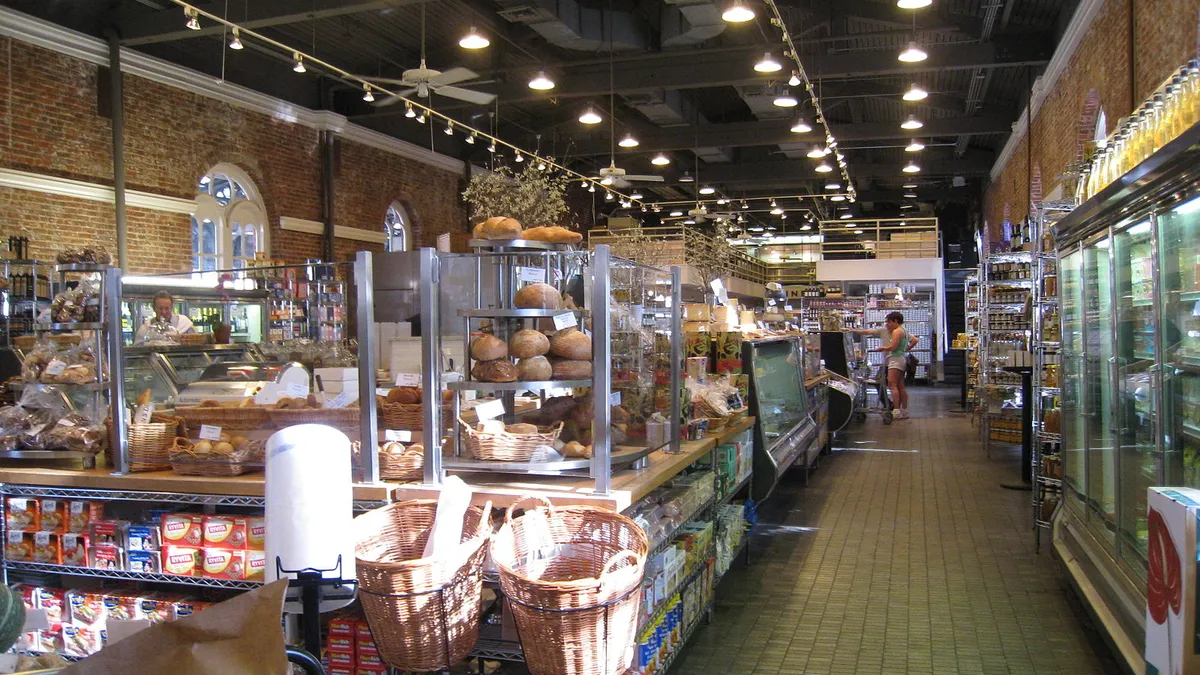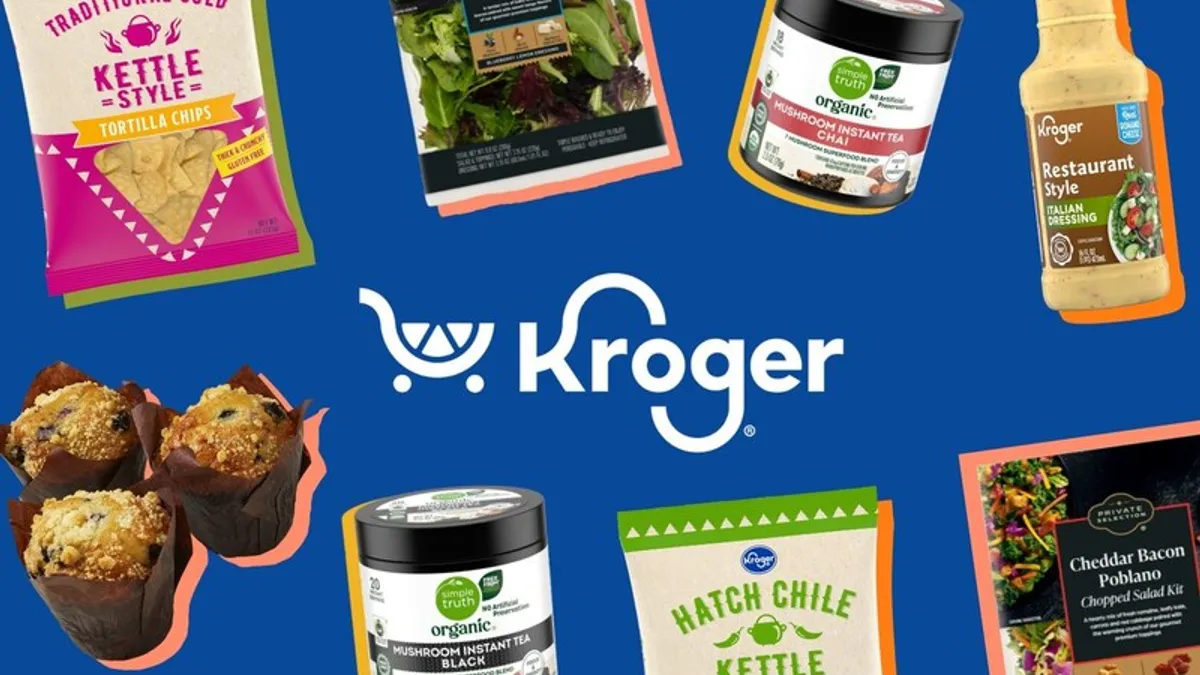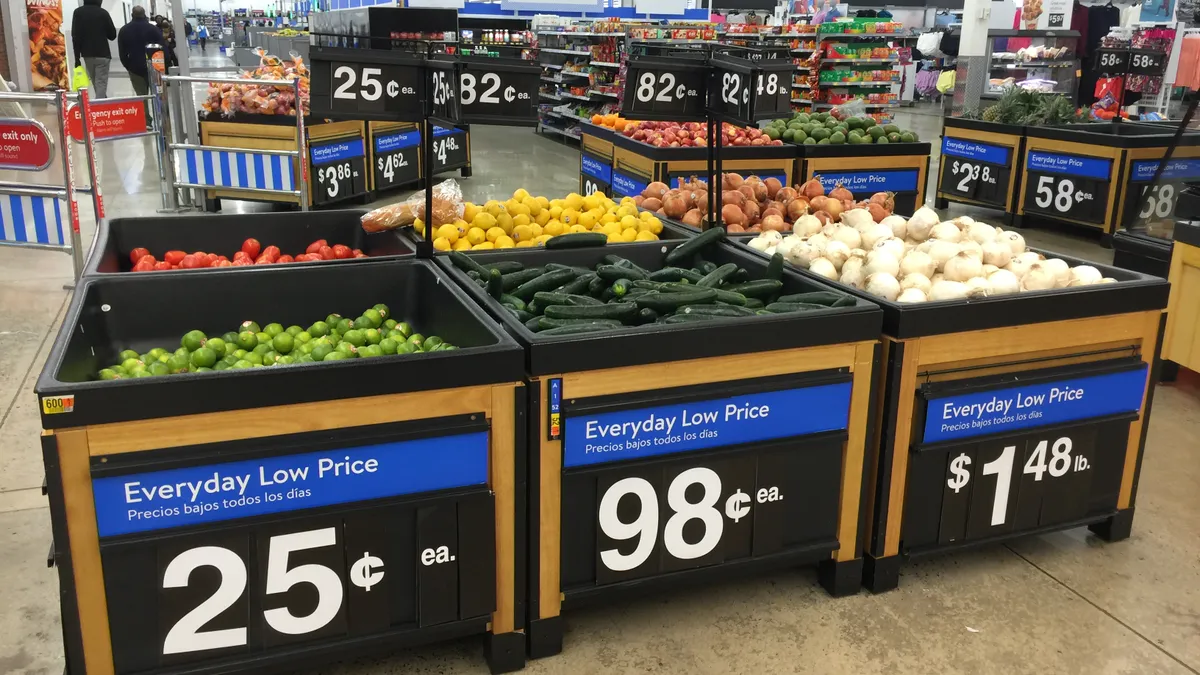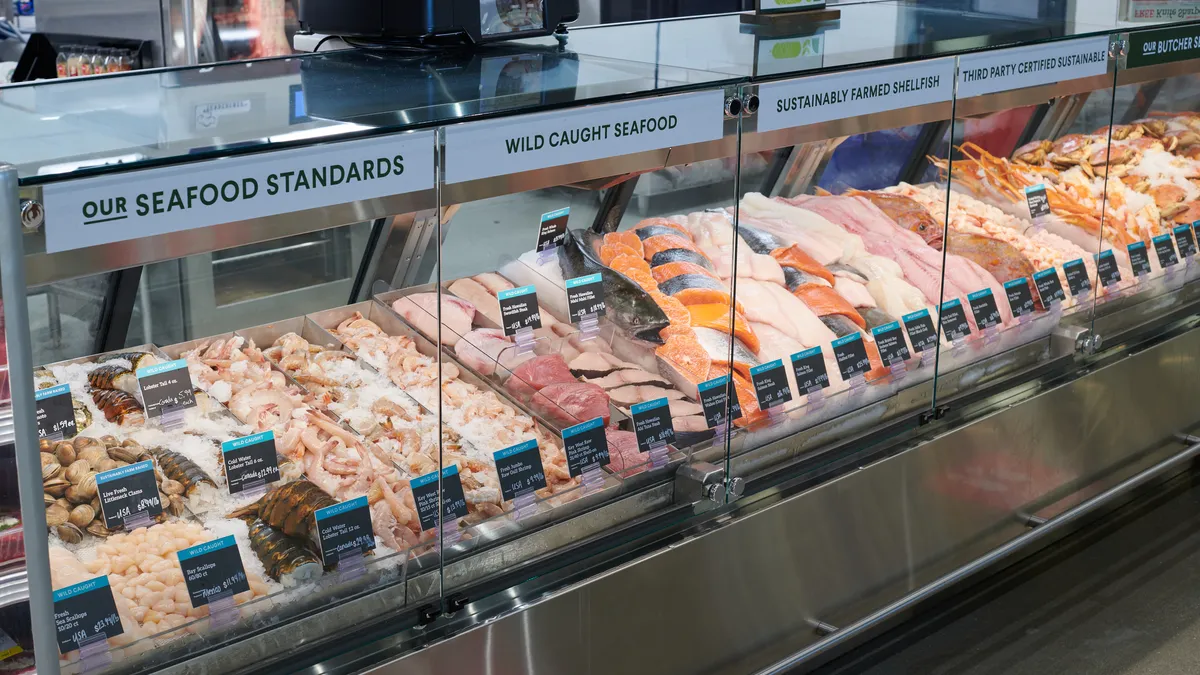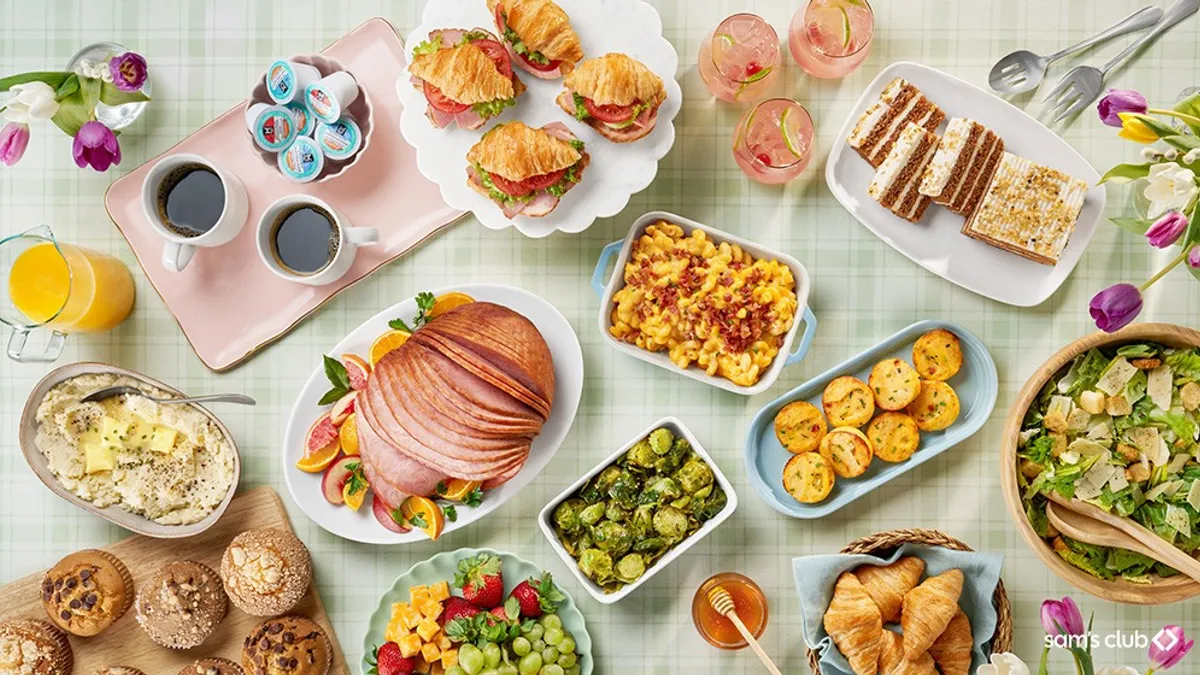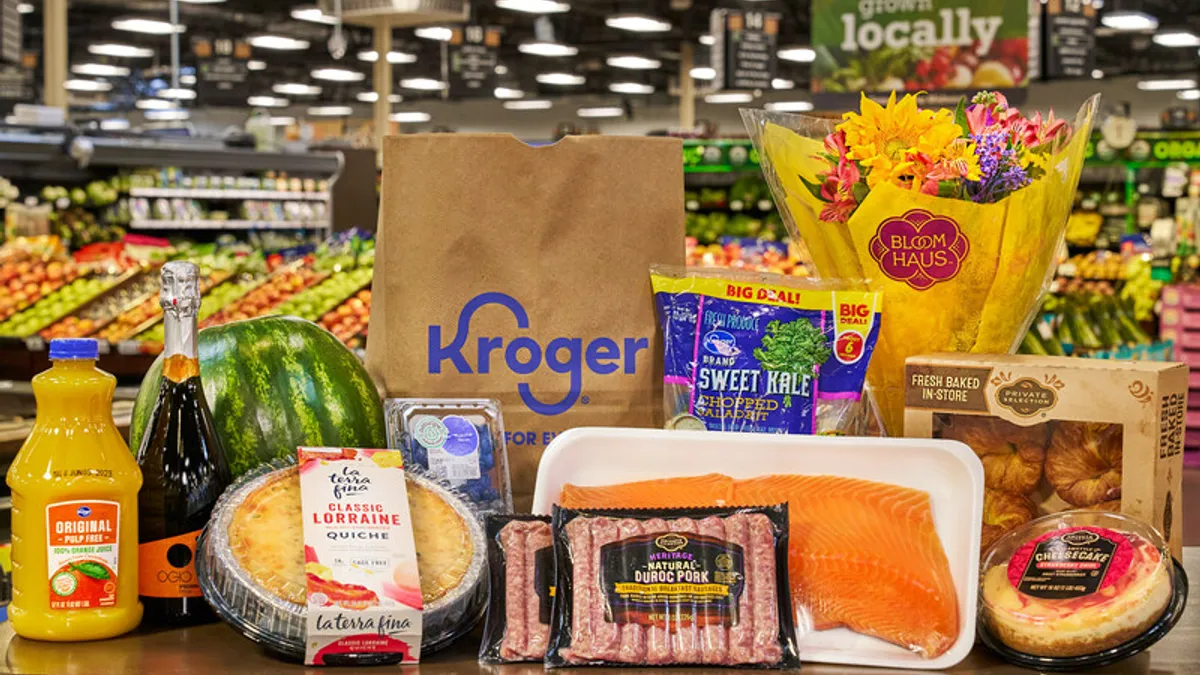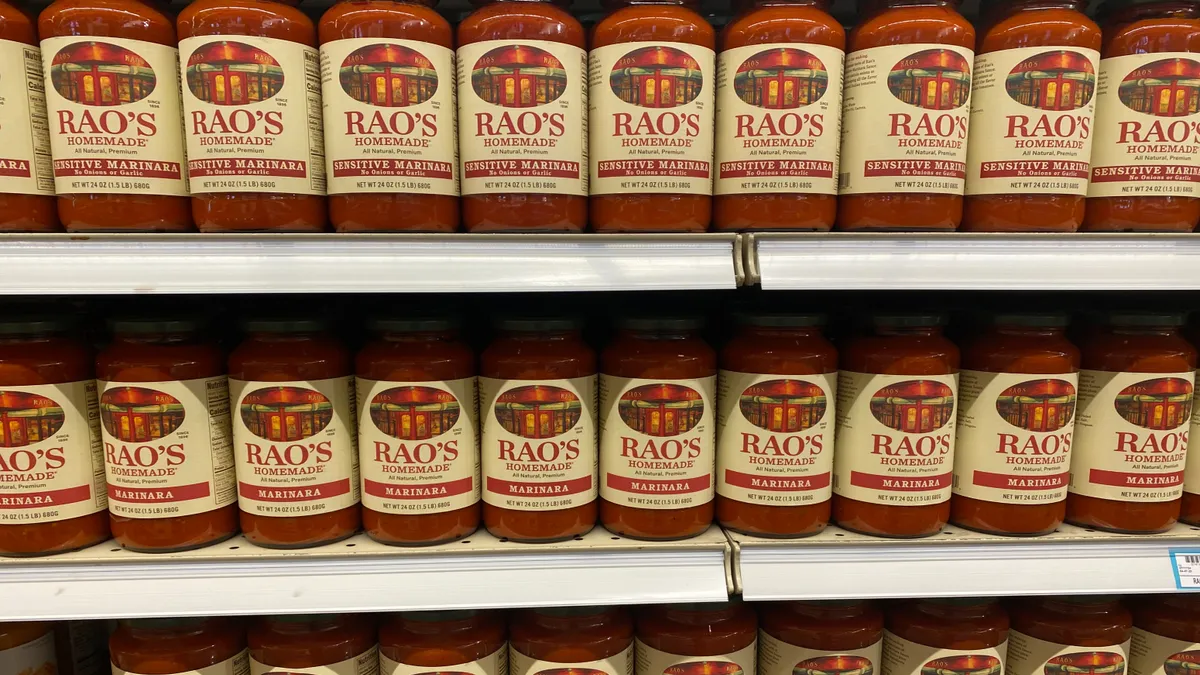In Dean & DeLuca’s heyday, celebrities like Anna Wintour and Sarah Jessica Parker could be seen roaming the streets of New York City on a Saturday morning with the retailer’s signature crisp white paper grocery bag in hand.
Bravo’s Top Chef host Padma Lakshmi told the New York Times she often goes to Dean & DeLuca for inspiration and ideas for recipes by meandering the aisles filled with fancy olive oils, beautiful fruit displays and fresh baked goods.
But the 42-year-old gourmet grocery store, which at one point exemplified all things luxe and was one of the forerunners of the prepared foods trend, has fallen apart. It has closed stores across the U.S. as debts have piled up. Only four locations remain open, including a Midtown cafe and its flagship store in Manhattan's Soho neighborhood that, according to reports, is mostly bare save for some private label products and a smattering of beverages.
Other well-known, hyper-premium grocers like Balducci’s, which shuttered its Manhattan locations a decade ago, have also been forced to close poor-performing stores as online grocery grows and less-spendy retailers expand their assortment of specialty goods.
At the same time, new gourmet grocers continue to pop up in the space. Just last year, “plant-based grocer” Bonberi opened in Manhattan while Clover Grocery, which positions itself as a "wellness bodega," opened in 2017. Popular salad chain Sweetgreen recently opened a gourmet market in Washington, D.C. while Philadelphia's Di Bruno Bros., which has been in business for 80 years, opened a cafe and bar last month.
Others like Citarella, Zabar’s, Gelson's Markets and Bristol Farms have stood the test of time. Neil Stern, senior partner at McMillanDoolittle told Grocery Dive this is because, despite Dean & DeLuca's struggles, gourmet grocers are still set up to succeed in today’s economic climate — if they position themselves correctly.
“The notion of being gourmet is probably the wrong kind of positioning,” said Stern. “There’s a lot of words you can use that are better than 'gourmet' like 'artisanal', 'sustainably sourced', 'locally made', because gourmet signals you’re going to be high-priced. You don’t want to lead with the fact that you’re expensive.“ He says other terms still command those higher prices but give customers a reason to pay it.
That can be difficult for gourmet grocers in today’s industry where traditional supermarkets and natural retailers are offering similar products. Whole Foods, for example, can be credited for mainstreaming premium and hard-to- find offerings, Stern explained. Wegmans has become a go-to for prepared food offerings in the Northeast.
“When Whole Foods entered the organic market, they were the darling and going double digits every year,” Keith Daniels, partner at Carl Marks Advisors, told Grocery Dive. “Then everyone saw the higher margins and now your Kroger and Walmarts have gotten in the organic market and it became less specialized, resulting in slimmer margins in organics.”
Analysts agree that the key for upscale grocers to succeed and avoid the same fate as Dean & DeLuca is to not only be well-capitalized but also aggressive with R&D and able to offer products and services that can’t be found elsewhere.
“You gotta earn that premium,” Stern said.
Daniels thinks prepared foods is where gourmet grocers can pull ahead of traditional retailers. “There’s mac and cheese that’s been sitting there for a couple hours, and wings," he said. "That’s not what people are after."
Customers are hungry for healthy options with specialized ingredients, Daniels said, which they’re willing to pay a premium for. Specialty produce that isn’t typically found at a supermarket can give gourmet grocers an edge as well, he noted.
Di Bruno Bros.' new cafe, Alimentari, is situated above its market in Philadelphia's historic Rittenhouse Square and features an array of sandwiches, Roman-style pizza, wine, coffee and specialty cheeses. Many of the dishes are made with the same ingredients sold downstairs, offering customers culinary inspiration. It's also, as owner Bill Mignucci recently told the Philadelphia Inquirer, a way to get customers to "spend two hours and not 20 minutes" with the grocer.
What went wrong
Dean & Deluca has also offered a variety of specialty offerings, but the chain didn’t stay up to date with trends and started to stray away from what made it original. As it struggled, the company started stocking mainstream brands like Coca-Cola, Haagen Dazs and Chobani.
“I think they had gotten stale over time," said Stern. "They lost the uniqueness and specialness and a reason to come in. You need to give me a reason to come and if I feel like you’re 10% better than the normal grocery store I go to then that’s not enough."
The chain, which is owned by Thai real estate mogul Pace Development Corp., is struggling to pay its remaining workers and has been cut off by numerous vendors, who claim the company owes them hundreds of thousands of dollars. According to reports, Pace CEO Sorapoj Techakraisri wants to right-size Dean & DeLuca's footprint in the U.S. while focusing on growth in the Middle East and Asia, where it currently operates more than 60 locations. Pace, which paid $140 million to buy Dean & DeLuca in 2014, has spent more than $100 million trying to improve its U.S. operations.
Daniels said expanding too quickly was what hit Dean & DeLuca the hardest. The company entered markets it couldn’t afford, he said, and the locations it expanded to didn’t hold the same density and demographics that could sustain Dean & DeLuca’s business the way its flagship location in Soho could.
Although gourmet grocers often sell a lavish image and assortment, they must remain operationally disciplined in order to succeed, Daniels said.
Companies have to know their markets well, too. In Southern California, Gelson's sells hard-to-find items like Hatch chili peppers and recently hosted a roasting and tasting event centered on the pepper last month. Gelson's also offers unique services like its Sip 'N Shop program, which lets customers sit at the store bar while an employee shops for them.
For gourmet grocers that are struggling, Balducci's offers a glimmer of hope. The iconic New York City grocer, which opened as a downtown produce stand in 1916, went through a family ownership dispute and closed its Manhattan stores in 2009. Publications at the time painted the business as a symbol of excess that was out of touch with a country battling recession.
In 2012, under new ownership, Balducci's returned to Manhattan with a Midtown cafe and store, offering "chef prepared" meals as well as a selection of wines and cheeses, gourmet produce like velvet nectarines and bakery offerings like peach blueberry galettes. The chain, now owned by a private investment firm that also owns Kings Supermarkets, has eleven locations across five states.



